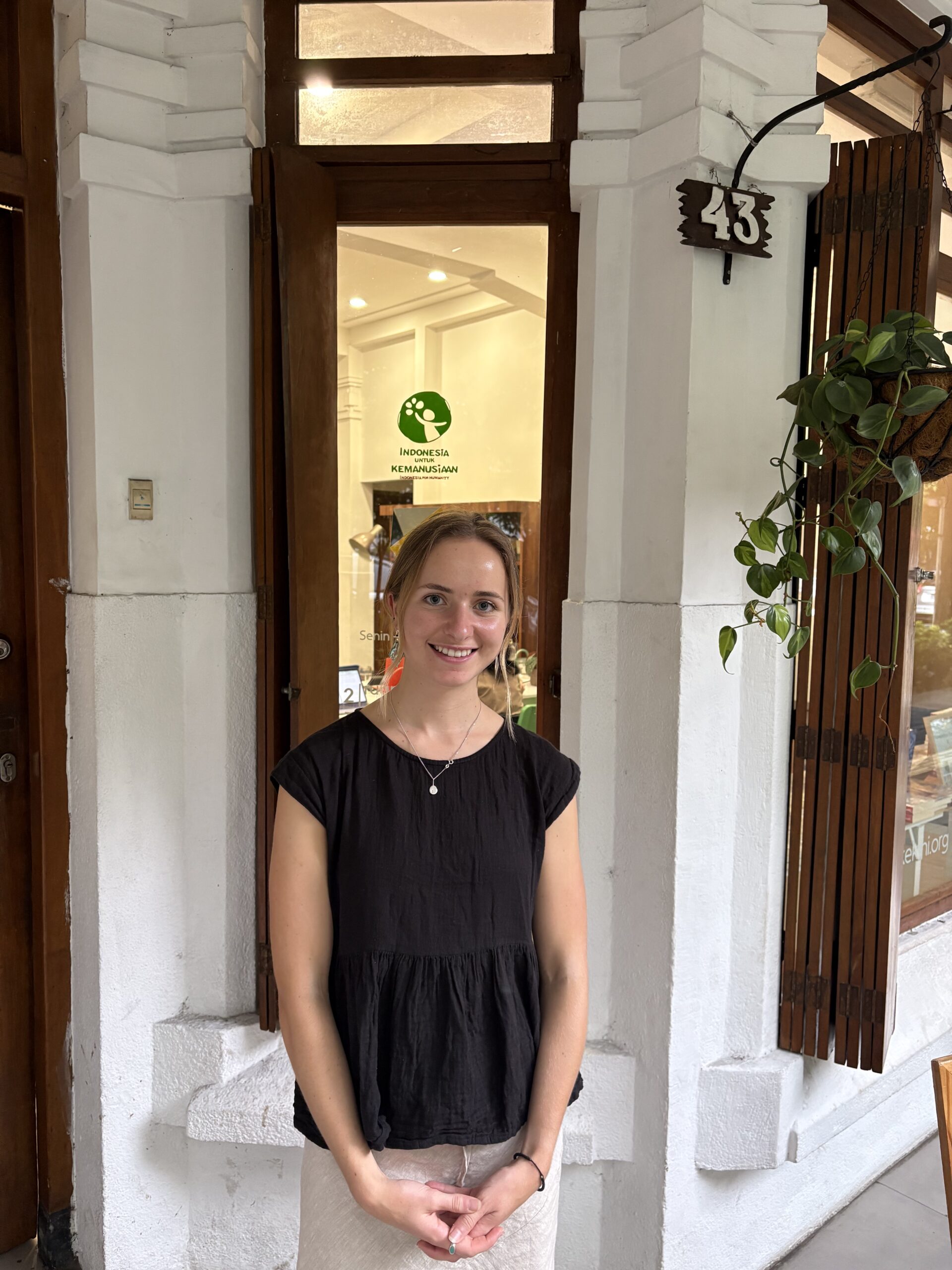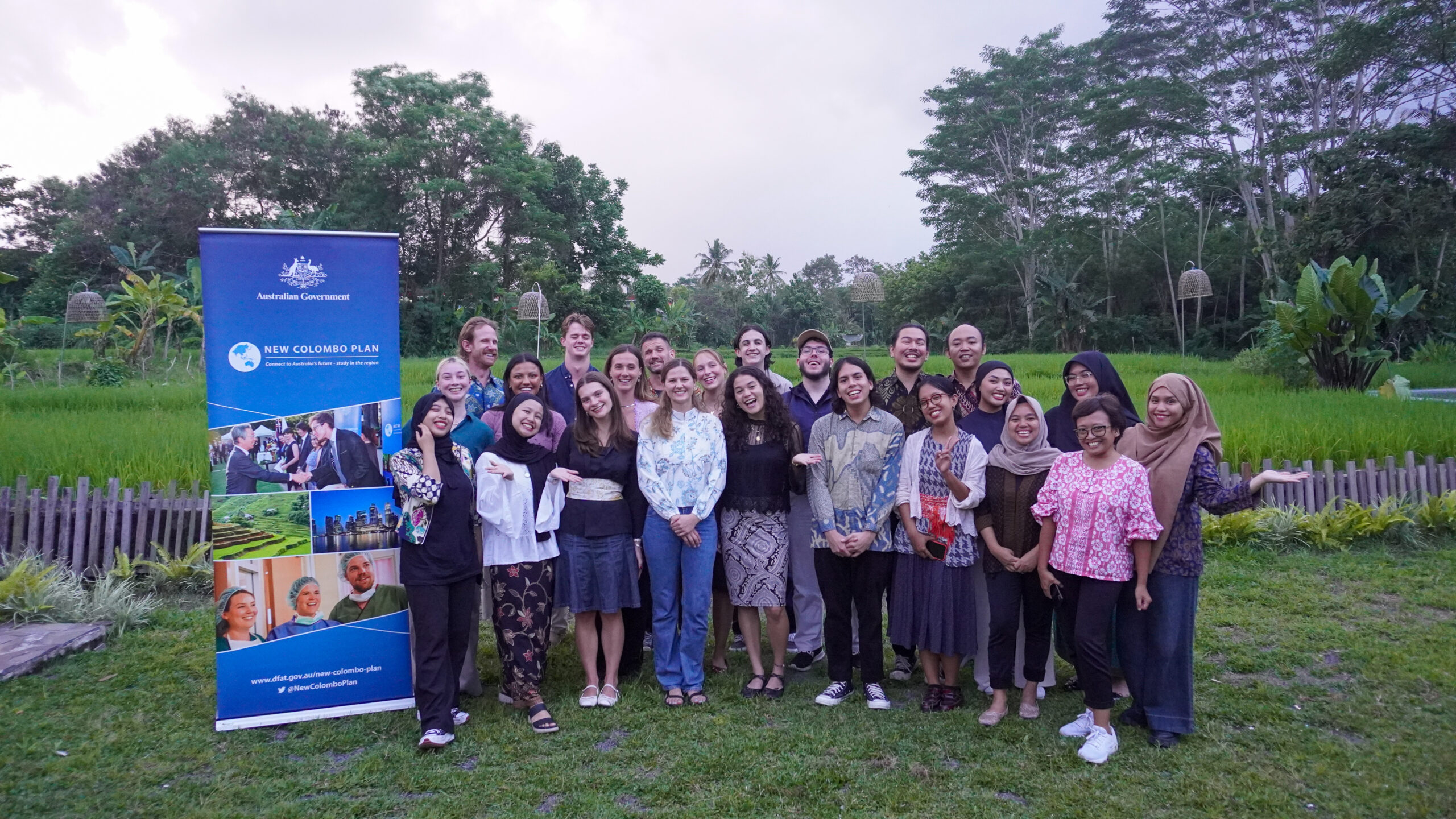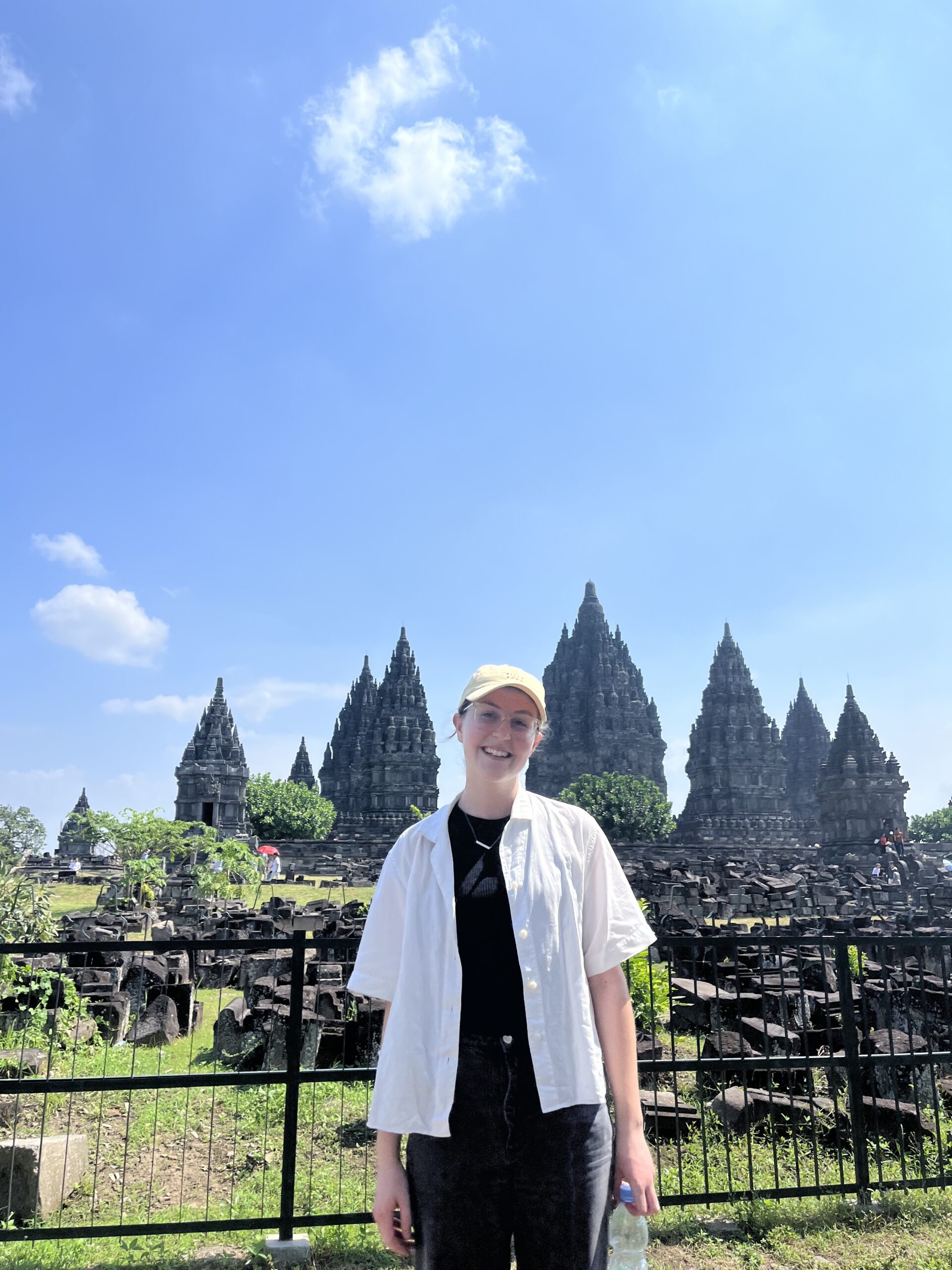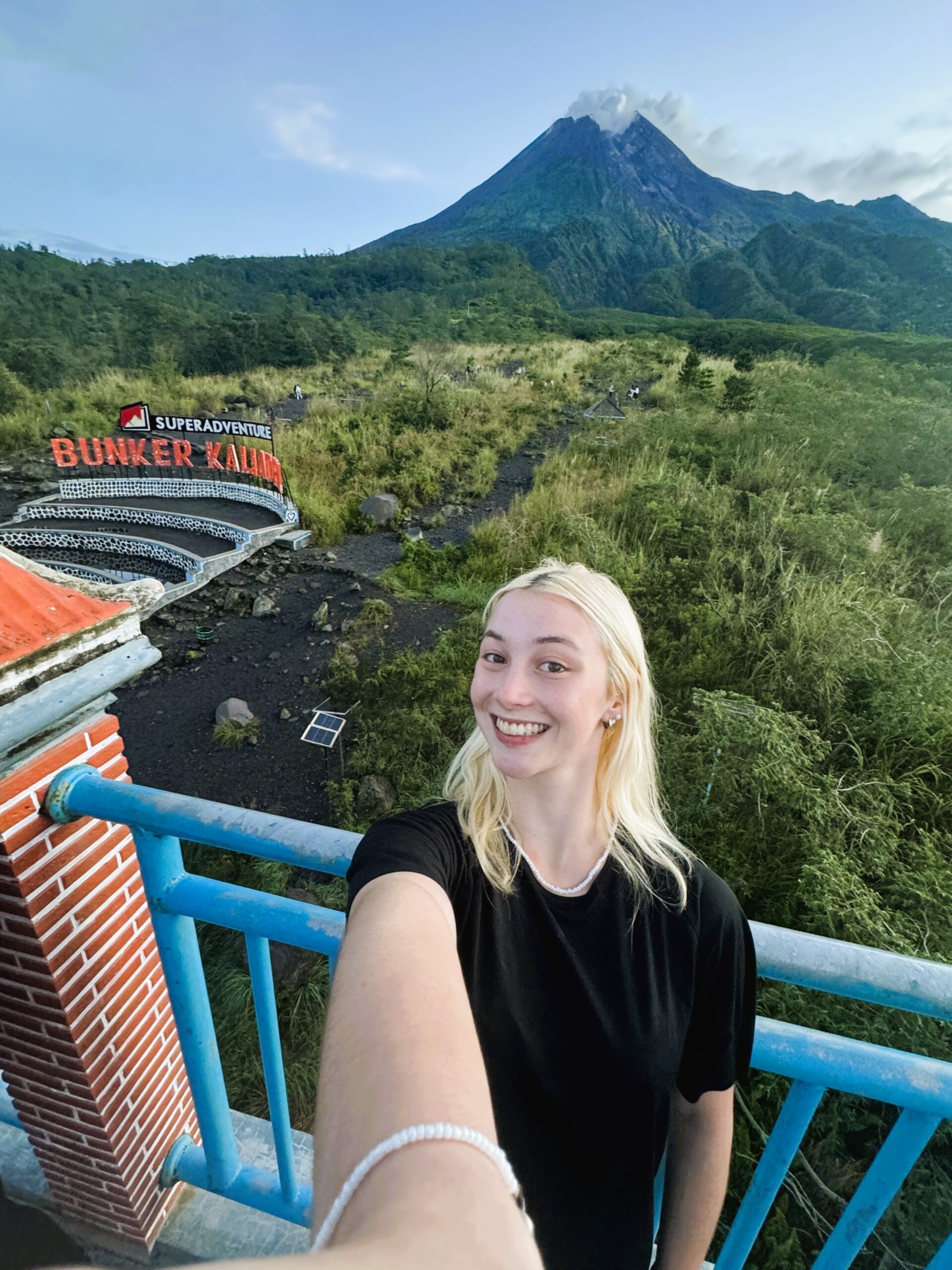Isla Sutherland was a participant of the Development Studies Professional Practicum (DSPP), in 2025. Isla is studying at The University of Newcastle.
Q: Why did you decide to undertake the Acicis internship program?
I decided to undertake the Acicis internship program to gain international experience that also counted towards my bachelor’s degree in Development Studies. Before commencing my degree, I always knew I wanted to work overseas in the humanitarian aid space. To support my future goals, I decided to explore possible global experience opportunities offered through the University of Newcastle. This is where I discovered the Development Studies Professional Practicum (DSPP). The DSPP offered by Acicis is unique in the sense that it specialises in Development Studies while offering both education and professional work experience within the one program. I knew gaining professional work experience before graduating would greatly support me when searching for jobs after completing my degree. Additionally, I was also deepening my knowledge of development issues in an Indonesian context and learning Bahasa Indonesian. The Acicis internship program was also a way for me to immerse myself in another culture for an extended period of time, which was a great way to determine if working internationally was something I was still interested in doing post-graduation.
Q: Did you receive a New Colombo Plan Mobility Grant? Do you think the NCP is an important initiative? If yes, why?
Yes, I was fortunate enough to receive the New Colombo Plan (NCP) Mobility Grant. I think the NCP is an important initiative for Australian students undertaking a degree. In Australia, we are incredibly lucky to have access to high quality education and resources. However, this also means students are less likely to want to study outside Australia. The NCP takes the financial pressure away from students to incentivise undergraduates to participate in experiences such as the Acicis Internship program. It is especially important for Australian students to immerse themselves in the Indo-Pacific cultures and build connections. Indonesia and the Pacific Islands are Australia’s closest neighbours; Indonesia is particularly close and is the world’s fourth most populated country. Indonesia’s population is only growing and its economic, cultural and environmental landscapes are continually changing. Developing a strong relationship between Australia and Indonesia for the future of both countries is critical. One of the first steps to this is providing students with the opportunity to work and study in Indonesia and the NCP is key mobiliser for this.
Q: Where did you live in Indonesia (Kos, homestay, hotel, rental etc.)? Any tips for prospective students on finding accommodation?
Prior to arriving in Indonesia, I booked an airbnb near Atma Jaya University in Jakarta. I knew I was spending my first two weeks studying at Atma Jaya so decided to organise my accommodation early so I did not have to stress about it once arriving in Jakarta. My Airbnb was great and I could easily walk to Uni each day. However, I did not book for my remaining 4 weeks because I knew I would have time to look at options in person or possibly share accommodation with friends I had made during my first 2 weeks. During the weekends in my first two weeks I visited potential accommodation options that I had found through online platforms such as Agoda, Cove and Airbnb. I ended up finding a Kos through the Agoda site. I found communication to be difficult online so decided to visit and book in person. This also allowed me to assess the room before booking to ensure I was happy with the accommodation and location. My tips for future students who will be living in Jakarta would be to stay near the major transportation lines such as the MRT or LRT. I found public transport really helpful and much cheaper than using Grabs all the time. My other tip would be to book something that has a kitchen, It was nice to do my own cooking, particularly when I was tired and wanted a quieter night.
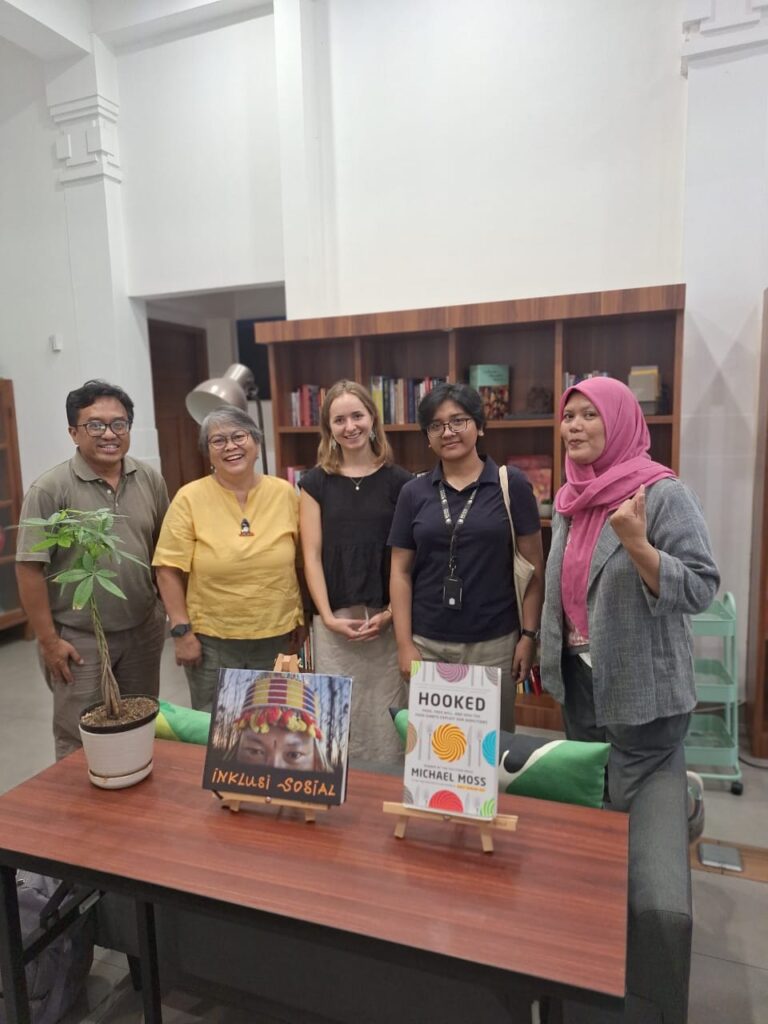
Q: How have you found the academic components of this program – i.e. the language classes/seminars?
I really enjoyed the academic components of the Acicis internship program. The days were divided in two; 4 hours in morning was spent doing Bahasa Indonesia classes followed by 4 hours of seminars in the afternoon. I really enjoyed the language classes, the classes were relatively small and very interactive which made the lessons very engaging. I enjoyed the Bahasa Indonesian classes so much that I have decided to enrol in Indonesian language classes at Newcastle University. The seminars were also very interesting. It was similar to lectures I would have at Newcastle University except we heard from Indonesian scholars or founders of Indonesian based NGOs and civil society groups. We also had the opportunity to visit the sites where these NGOs and civil society groups had carried out their projects.
Q: What organisation are you interning with? (Explain your role and responsibilities)
I undertook an internship with Indonesia untuk Kemanusiaan (Indonesia for Humanity – IKa), a local civil society resource NGO dedicated to supporting grassroots initiatives through small grants, education, volunteerism, and networking. My role involved conducting research and writing articles on the Shifting the Power movement, which focuses on leveraging community strengths to foster self-reliance and reduce dependency on donor funding – an increasingly critical issue in the current foreign aid landscape. Capitalizing on community strengths for long-term development success is a topic that I have researched regularly throughout my degree. It was interesting to see how this is done within an Indonesian context. Many of the meetings and discussions I participated in were focused on how to diversify funding and increase funding independence.
Q: How have you found the work culture of your host organisation? How is it different to work experience in Australia?
The work culture is very different from my experience in Australia. I would describe the Indonesian work culture as being more collaborative. My previous jobs in Australia were less collaborative and staff would have their designated roles to focus on. In contrast, the team at IKa work very closely. The office was small and the staff were able to sit where they like depending on who they needed to work and discuss ideas with. I really enjoyed my lunch breaks where we would all sit around a dining table and share stories, It was a great opportunity for me to practice my Bahasa!
Q: What are the main skills you have learnt during your internship?
I learnt how to work in a collaborative environment which meant adapting to people’s different work styles. This is a really important skill to develop particularly if I want to work internationally in the future. Another skill I developed was my article writing skills. During my internship I was asked to produce articles for IKa’s website, these articles had to be produced quickly but to a high standard. This taught me to write efficiently and concisely so readers from all backgrounds could easily understand the ideas I was presenting.
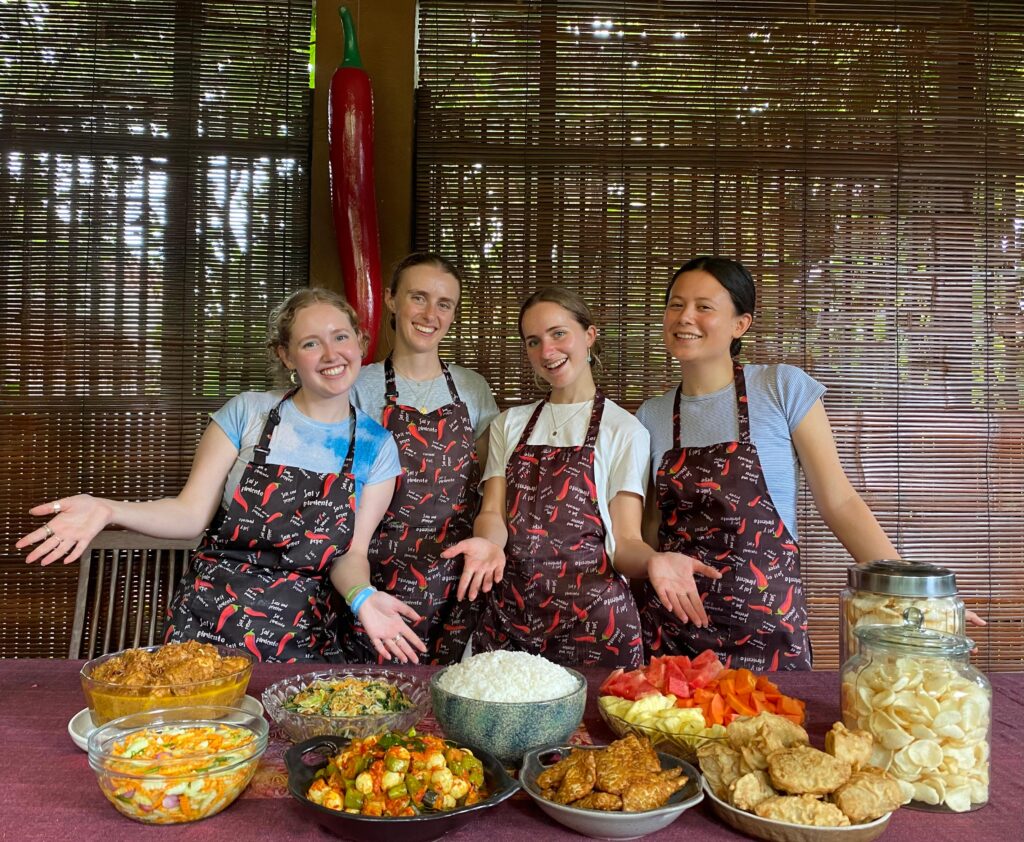
Q: What did you find to be the most rewarding part of this experience?
The connection I developed with the staff at my internship organisation was incredibly rewarding. I hope to keep in touch with the IKa team who very warmly welcomed me into their office environment. Being able to assist a local civil society NGO that is addressing important issues such as violence against women, human rights, and natural disasters facing communities within Indonesia was very rewarding.
Q: Were you able to learn about the Indonesian culture from this program? If yes, how was this achieved?
Definitely! Being able to live in Jakarta for almost 7 weeks allowed me to fully immerse myself in the Indonesian culture. A large proportion of my time was spent with the local people of Jakarta. My accommodation was mainly Indonesian students, and my workplace also had people from all over Indonesia. I learnt a lot about Indonesian culture by asking my colleagues questions and recommendations for places to visit. I also made it my goal to try as many Indonesian foods as I could. This was made difficult at times due to being a vegetarian, luckily however, there were usually some vegetarian options. Gado-Gado is, without a doubt, my favourite!
Q: How will the internship benefit or influence your future career?
The internship program has established that I would like to work internationally in my future career. I really enjoyed immersing myself in another culture and hope to continue experiencing other cultures in the near future. The DSPP has also made me consider working in Indonesia; I hope to return someday soon! I have built many connections throughout Indonesia and have even continued my Bahasa language at Newcastle University.
Q: Would you recommend this program to your friends?
Yes! I would definitely recommend the program to my friends. It was an experience that I will never forget. I developed life-long friendships and connections with other Acicis students as well as local people in Jakarta. My cultural awareness has deepened significantly and I feel motivated to continue participating in international experiences in the future.
Q: Favourite Indonesian word/phrase:
Rubber time! – time is flexible and things will happen when they happen
Q: What did you get up to in your free-time? i.e. in the evenings and on weekends.
I made it my goal to see as much of Jakarta and nearby regions in the evenings and on weekends. I made some friends during my first two weeks at Atma Jaya and together we did many acitvities. Each night we tried to visit a new local restaurant and experience the local cuisine. Jakarta has an amazing coffee culture so we also tried all the local coffee spots before work. On weekends I tried to visit popular tourist sites such as the museums and monuments. During the program we also has a long weekend for Chinese New Year so I took this opportunity to fly to Yogyakarta. During our time in Yogyakarta we visited both the Borobudur and Prambanan temples which were amazing!
Q: What surprised you about Indonesia? Any new insights?
It surprised me how few foreigners and tourists I saw in Jakarta. When I was exploring the streets of Jakarta I got many looks and people wanting to get photos with me. Most tourists who visit Indonesia go to Bali and the smaller tropical Islands rather than the larger cities like Jakarta. I was also surprised by how easy it is to travel and use public transport within Jakarta considering it is a mega city. I ended up catching buses and trains majority of the time because they were cheaper and much faster than Grabs.
